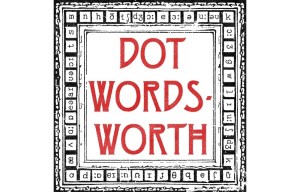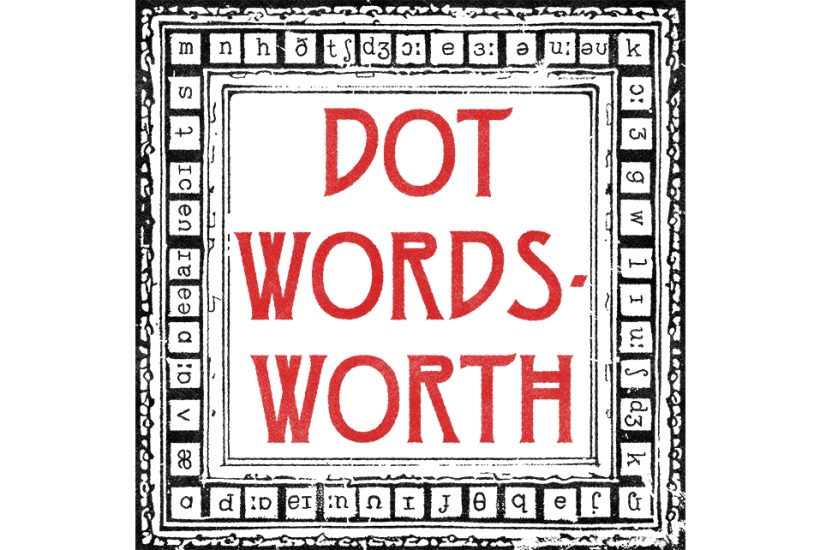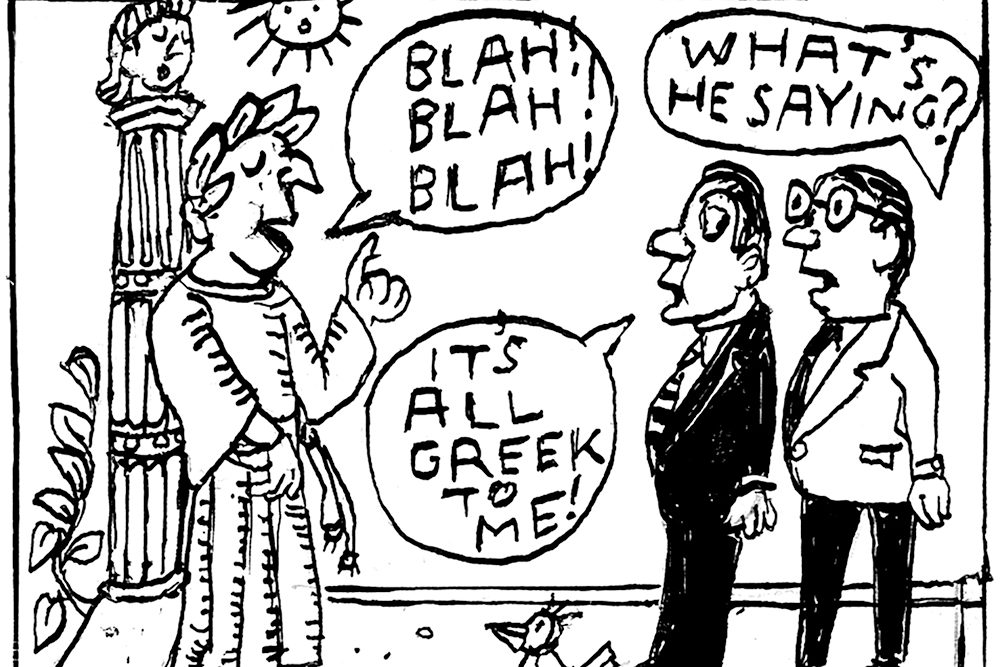“Am I housebound?” asked my husband as I was discussing with him the complicated history of the name for his role.
“No, darling,” I said. “You’re the one in the house who just is or lives there.” Only later did I tell him that the word bond, behind the -band of husband, sank in worth with the years, following the same path as boor, churl and peasant.
Whereas I as a housewife enjoy a comparatively transparent label, any husband’s title is obscure. It is simply a house-bond, but the first element of husband, hus-, no longer seems like house, and the -bond element is often mistaken for a form of bond, to do with binding.
The bond in husband derives from words in Norse languages with related meanings “to live, dwell, to cultivate, to build.” Old English had a connected word, buan, “to dwell,” and these all came from the ancient Indo-European word that gave us be, as well as the Latin fui and the Greek stem phu- (hence physics). The history of the English word be finds cousins in Persian, Russian and Irish.
Before the Norman Conquest, bonda in English meant a freeman, like a ceorl (churl), below a noble thane but above a servile worker. After the Normans came, the churl sank from freeman to a tenant bound to a lord, and bonde in Middle English became equivalent to a villein or serf, and then to a slave. It was at this stage that the word became confused with bond as in bondage. In husband, the fossilized -band was insulated from these developments in meaning.
Husbandry meant at first management of a household, an obsolete sense, of which we retain only husbanding of resources. Husbandry was the task of a husbandman, cultivating the soil. The husband as master of the house came to mean the correlative of a housewife, to whom he’d be married. Strangely, some men in the Middle Ages, such as Richard Husewif (1192), had the word as a surname; perhaps it was taken as a role independent of sex. My husband couldn’t be mistaken for one.
This article was originally published in The Spectator’s September 15, 2025 World edition.






















Leave a Reply